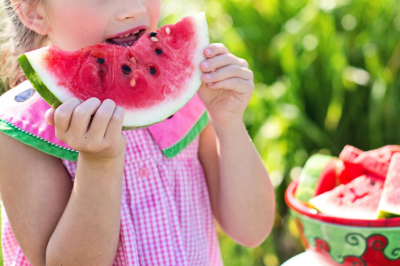Many of our speech and language students are as ready to shift into summer gear as we are. They’ve worked hard during the school year: Abided by a structured routine, woken up early, rushed out the door, and actively engaged in mental activities for seven hours out of the day. It’s time for them to relax and reap the benefits of the hot summer sun, later alarm clocks, and spontaneous play. Unfortunately, the end of the school year also means the end of specialized services for many of our students that have speech and language delays. Continuity and follow-through are important, especially with the facilitation of these skills. Below are some ideas and activities to send with your students on the last day of school:
Pre-K Speech and Language: Preschool language activities are boundless and can incorporate almost any type of summer play activity. Water activities can be a good way to target increasing utterance length. A child can learn how to incorporate verbs, objects, and adjectives while engaging in water play. Sidewalk chalk can be used to draw pictures for story retell following an age-appropriate story, targeting the inclusion of a character, setting, problem, and conclusion. Target speech therapy sounds by naming summer items in your back yard and having your child name them, as well, using appropriate visual cues.
K-2nd Speech and Language: Younger children can target language skills by engaging in gardening with their parents in which cause and effect can be addressed, as well as vocabulary. Have your kids explain the correlation between watering, sun, soil, and plant growth. Then have them describe the different plants, flowers, and vegetation that have been planted. Picnic activities are also a good way to target language skills, especially with sequencing, following directions, and describing. Pool activities are also a good way to target language skills. Students can create their own games, rules, and scoring system to promote creativity and increase expressive language.
3rd-older Speech and Language: Older children can also engage in picnic activities to increase language skills. Have your kids plan and organize a picnic, from the grocery store all the way to the actual packing. Planning and organizing an activity is a good idea to develop independent skills for older students. Incorporating journal writing can be very important for this age group as written expression skills become increasingly important. Kids can maintain a journal during the summer, writing their summer activities in detail, friendships they may have developed, and perhaps a creative story involving what their ideal summer might be.
With some guidance and suggestions, our students can maintain the speech and language skills we’ve worked so hard to facilitate all school year so they may be ready to return to the following school year, ready to tackle their speech and language objectives!
Author: Griffin Parrott, M.Ed., CCC-SLP

